Introduction
A technical logbook is a documentation tool that records the operating history and condition of laboratory equipment, machines and other technical systems. It is not only used to record usage data, but also for maintenance planning and quality assurance.
In highly regulated industries such as pharma, biotech and food technology, technical logbooks play a crucial role in ensuring compliance and efficiency. This blog article explains the importance, functions and future trends of the technical logbook in more detail.
History of the technical logbook
The concept of the technical logbook dates back to the early days of industrialization, when it was still kept in paper form. Engineers and technicians used these books to manually document important operating data and plan maintenance cycles.
With the advent of digital technologies, technical logbooks have evolved. Digitization has not only improved the accessibility and accuracy of this data, but has also made it possible to integrate it with other software systems.
Structure of a technical logbook
Important elements and components
A technical logbook usually includes the following elements:
- Date and time of use
- User information
- Device data such as serial numbers and model types
- Maintenance reports
- Error and repair logs
Typical contents: Data, maintenance reports and event logs
The documentation in the technical logbook includes both planned maintenance work and unplanned incidents such as breakdowns or repairs. Each event is recorded in detail to ensure a complete history of the device status.

Typesof technical logbooks
Technical logbooks for devices:
This type of logbook is kept specifically for machines and devices. They are used to monitor usage cycles, maintenance intervals and faults.
Examples could be
Logbooks for laboratory processes:
Process-related logbooks record the sequence of experiments, production steps or laboratory activities. They are crucial for the traceability of results and process optimization.
Examples include:
Logbooks for premises
The use and management of premises can also be documented in logbooks. They contain information on cleaning schedules, climate conditions (e.g. temperature, humidity), security checks and access controls, such as:
Benefits for laboratories
Increased efficiency through precise documentation:
Thanks to the complete documentation of all processes, the technical logbook enables precise analysis of operating times and sources of error. Laboratories can thus optimize their processes and minimize unnecessary downtimes.
Safety and compliance: ISO and GMP standards:
In sectors with high regulatory requirements such as the pharmaceutical industry, technical logbooks are a must. They guarantee compliance with ISO and GMP standards and ensure the traceability of the work carried out.
Digitization of the technical logbook
Switching from paper-based logbooks to digital systems has many advantages. Digital logbooks offer centralized, cloud-based storage of data that can be accessed at any time and from anywhere.
In addition, digital systems enable integration into existing laboratory management software, which further increases efficiency and reduces sources of error.
Technical logbooks in highly regulated industries
In the pharmaceutical and biotechnology industries, technical logbooks are essential to meet strict regulatory requirements. These logbooks document the maintenance and use of equipment used to manufacture drugs or medical products.
They also play an important role in the chemical and food industries to ensure that processes run correctly and all legal requirements are met.
Functions of a modern digital logbook
Modern digital logbooks offer numerous functions that go beyond mere documentation. These include
- Automated notifications for upcoming maintenance
- Integration in LIMS (laboratory information systems) and ELN (electronic laboratory notebook)
- Real-time analysis of device data
Challenges when introducing a technical logbook
Introducing a technical logbook can be challenging, especially if employees are used to paper-based systems. Training and good change management are required to make the transition successful.
In addition, technical logbooks must be designed to be user-friendly and intuitive in order to ensure a high level of acceptance within the team.
Technical logbooks and data integrity
A crucial aspect of technical logbooks is ensuring data integrity. All entries must be complete, correct and tamper-proof. Digital logbooks offer additional security measures such as time stamps and encryption to ensure data integrity.
These measures are essential to successfully pass audits, especially in laboratories that work under strict conditions.
Case studies: Technical logbooks in use
One example of the successful implementation of a technical logbook is the LabThunder web app. This software offers comprehensive functions for managing laboratory equipment, including automated maintenance planning and real-time analyses.
LabThunder has enabled laboratories to increase their efficiency by up to 30% by optimizing equipment utilization and minimizing maintenance errors.
How technical logbooks increase productivity
Technical logbooks enable data-based decisions as they provide accurate records of the use and condition of equipment. This helps laboratory managers to make informed decisions about maintenance, new purchases or the decommissioning of equipment.
By optimizing the use of resources, technical logbooks help to avoid unnecessary costs and increase productivity.
The future of the technical logbook
The future of technical logbooks lies in automation and the integration of artificial intelligence (AI). AI-supported systems could be able to proactively plan maintenance and automatically identify sources of error.
In addition, the networking of laboratory equipment through the Internet of Things (IoT) will make it possible to collect and analyze data in real time, leading to even more efficient management.
Technical logbooks and sustainability
Digital technical logbooks contribute to sustainability by reducing paper consumption. Digital archiving enables laboratories to make their processes more efficient and conserve resources.
In addition, precisely documented maintenance cycles minimize wear and tear on devices, which extends the service life of laboratory equipment and thus also contributes to sustainability.
Conclusion
Technical logbooks are an indispensable tool in modern laboratories. They not only contribute to efficiency and productivity, but also ensure compliance with regulations and improve traceability.
Digitizing these logbooks offers additional benefits, including automation and improved data integrity. Laboratories that rely on digital technical logbooks benefit from increased efficiency and actively contribute to sustainability.



LabThunder:
✅ Compliant with ISO 17025, GMP/GLP, and ISO 15189
✅ Digital logbooks instead of paper chaos
✅ Thunder AI central intelligence for errors & questions
✅ Smart & predictive maintenance prevents downtime
✅ Greater independence from external service providers
✅ Up to 50% fewer service calls
✅ Easy to use - no IT required
Contact us today for a free demo:
%20new.png)
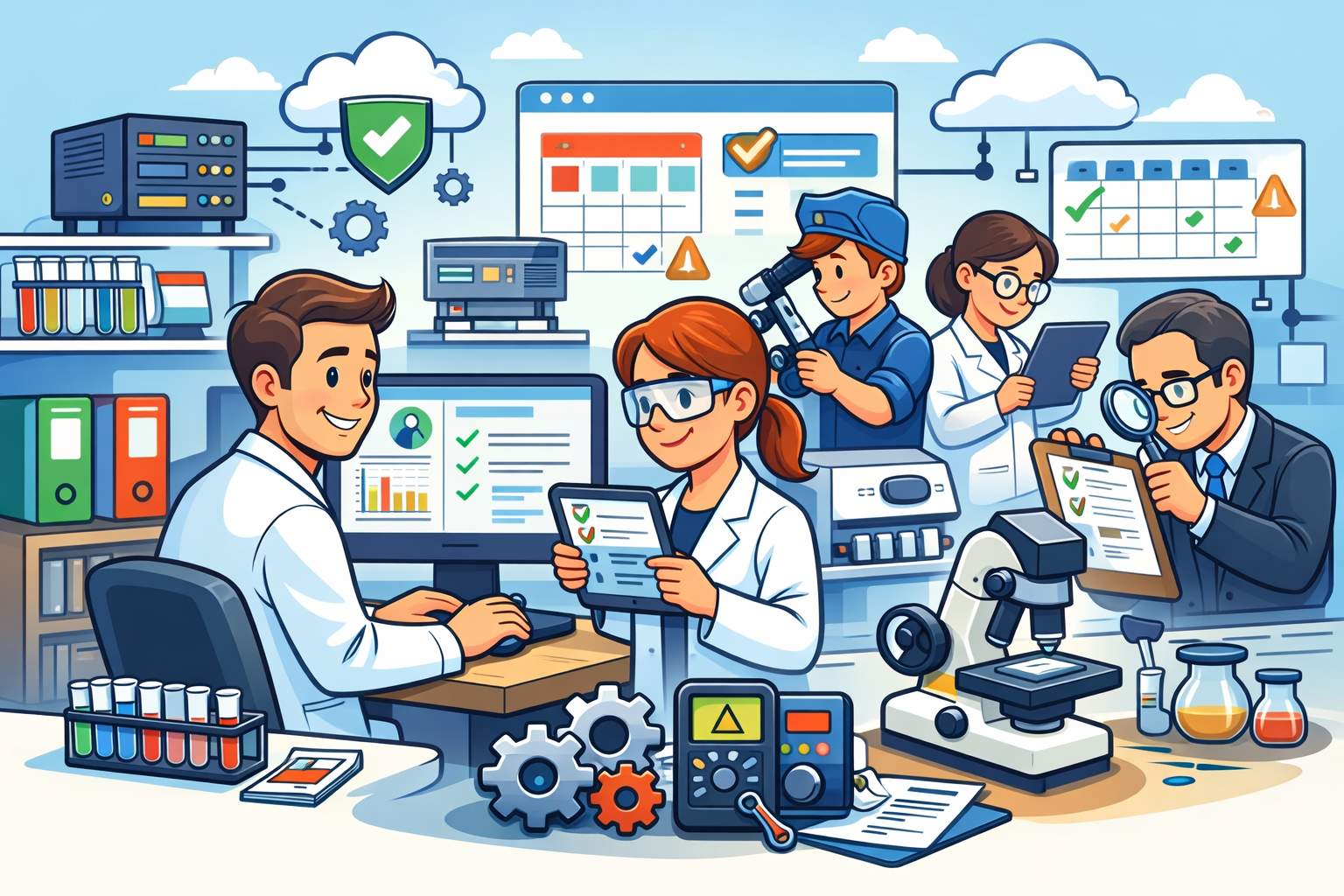

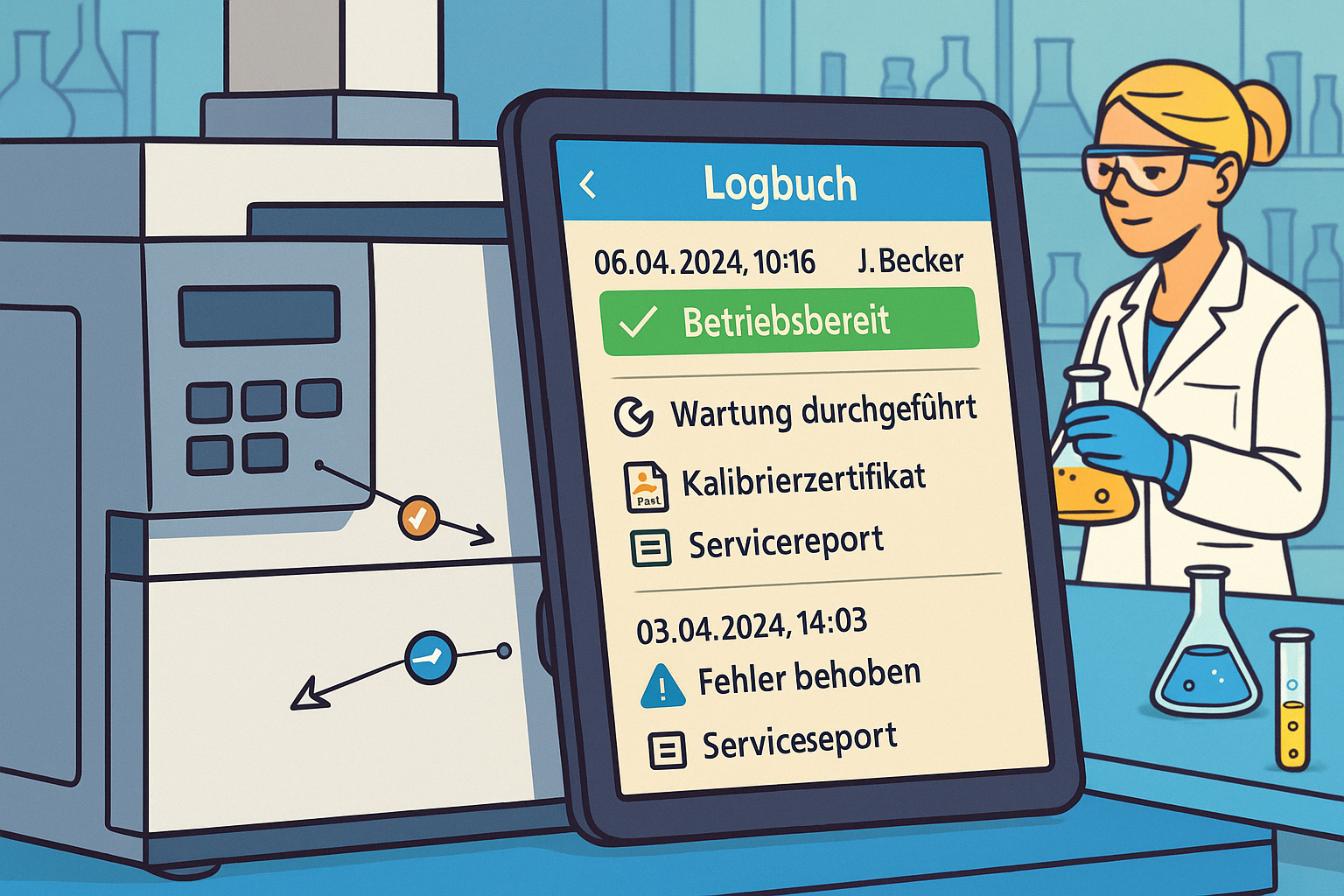


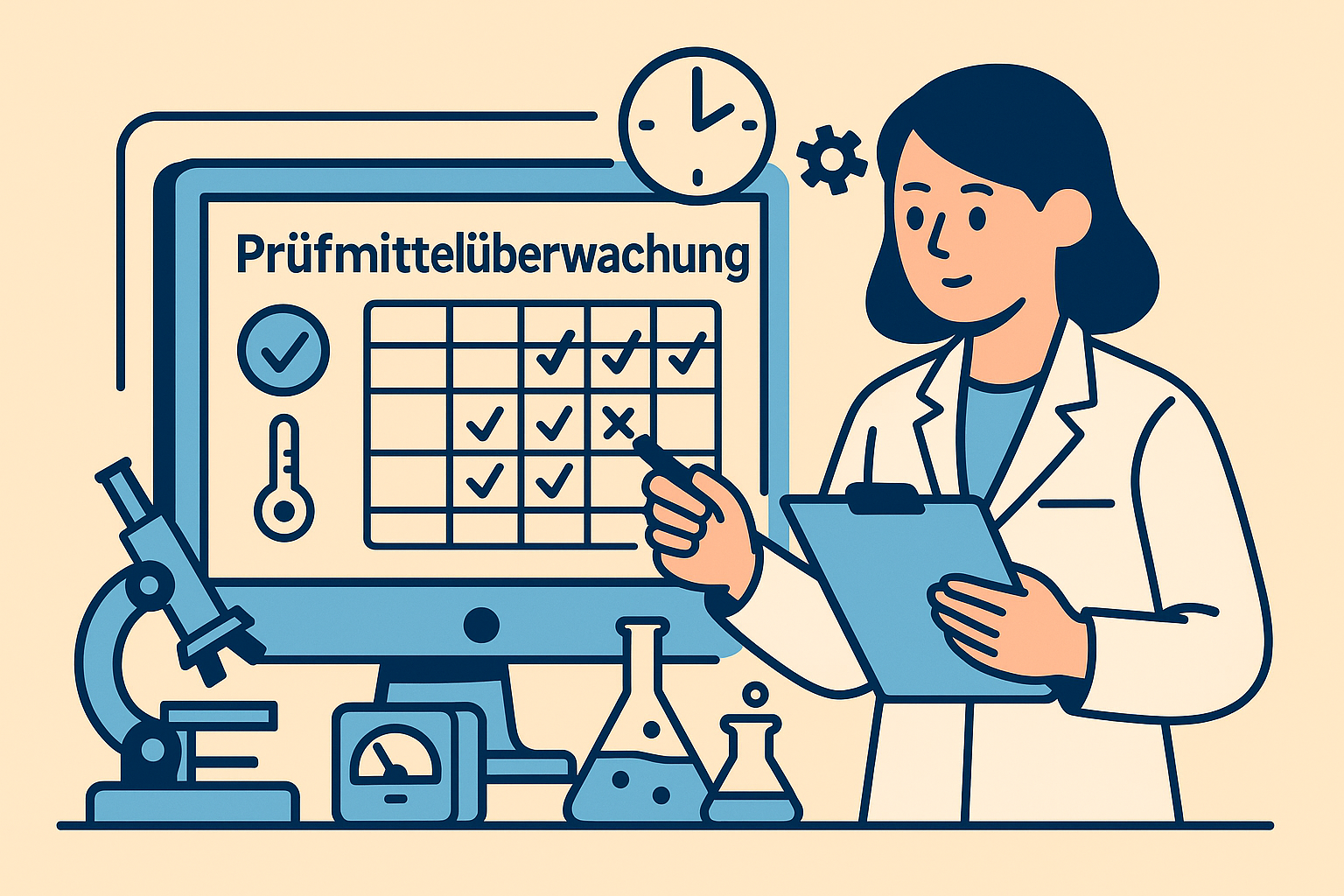
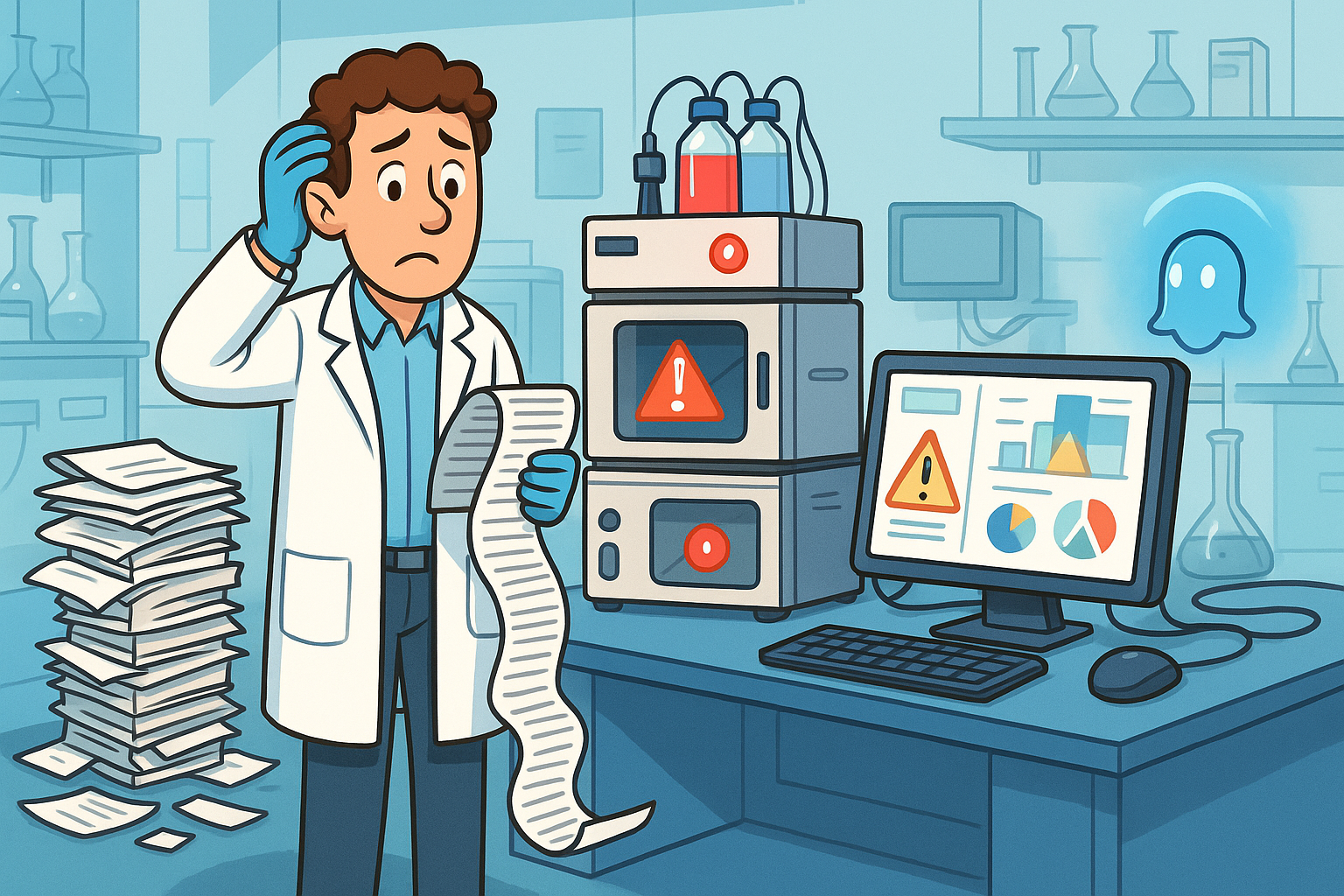
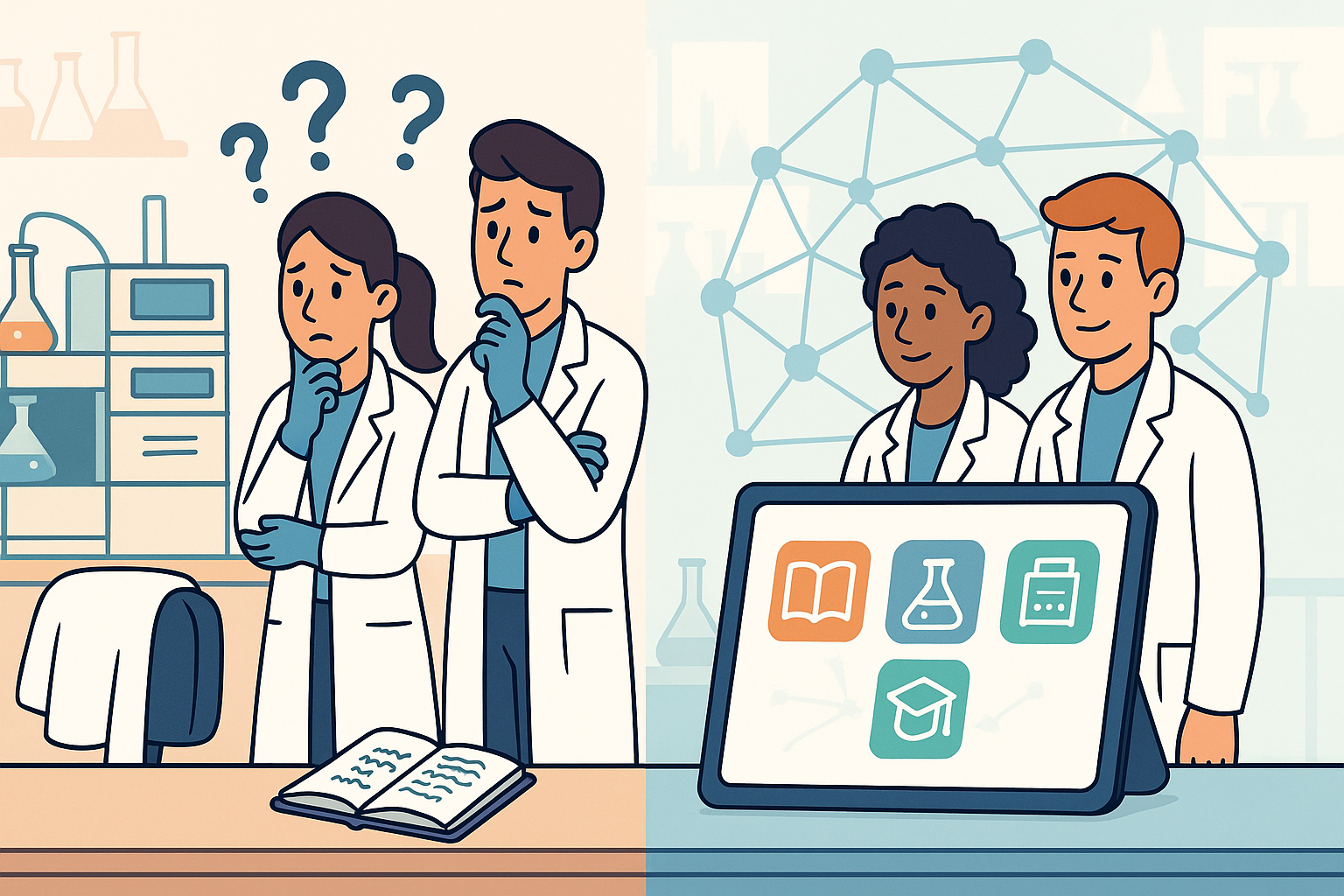

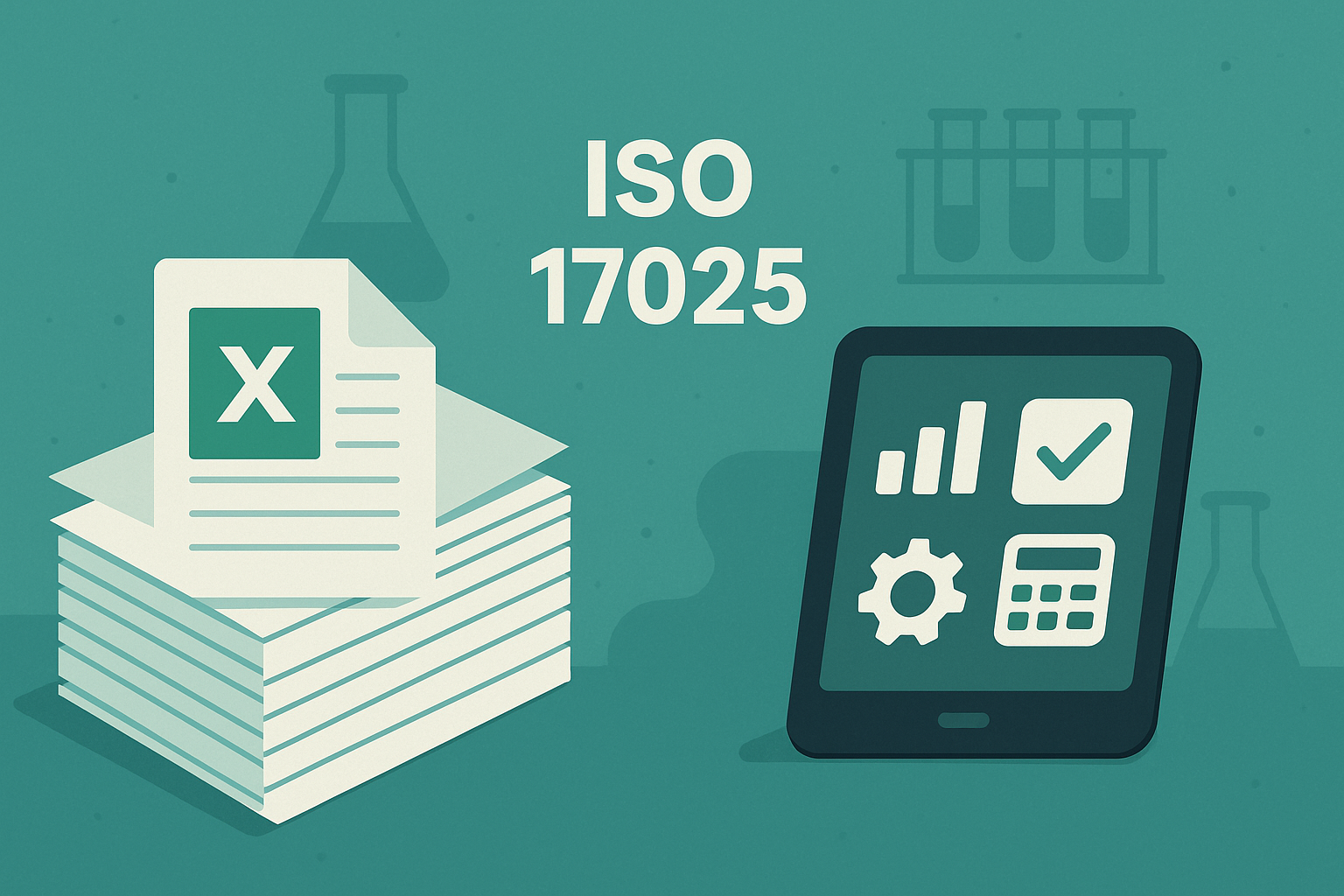







.jpg)
.jpg)
